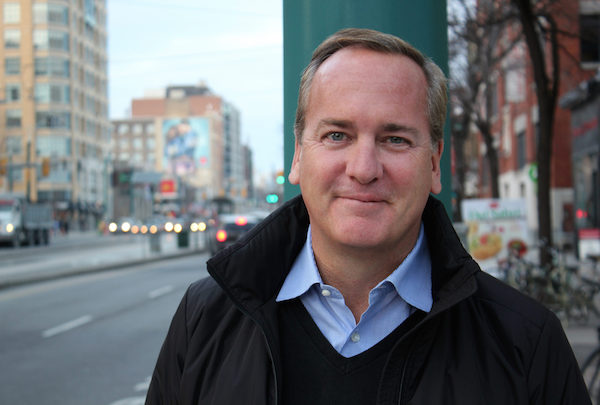Chris McDonald, Miguel Gomes, Tala Hadid: International Competition Jury Speak
With the verdict in their hands, this year’s jury members for the International Competition category – Chris McDonald, President of Hot Docs, the largest documentary film festival in North America, Writer Director and photographer Tala Hadid and the Head of the Jury, Portuguese filmmaker Miguel Gomes – shared insights on the selected films, without spilling the beans of course!
Chris McDonald

Chris Mcdonald
The festival is about to end, how has your time at MAMI been? How was your experience as a jury member?
It was terrific! It is an extremely well-run festival and I am delighted to see audiences enjoying the films. It’s my sixth time here in India and I think it’s one of the most interesting countries in the world. I’m delighted to be back and am also thrilled to see the festival get bigger and better.
As for being a jury, it was a great experience. Watching the films was a joy and the deliberation was very collaborative. There is nothing more fun for me than watching and discussing cinema.
You have been to numerous festival around the world, what makes MAMI different?
Every festival is different and every festival has its own personality. This is an extremely welcoming festival on every level. Everybody is helpful, friendly, warm and most importantly, professional. I have been to a lot of festivals that are not necessarily well-run or concerned about the experience of their international delegates. This festival has accomplished all of those goals impressively.
Were there any overriding emotions that the films in the International Competition dealt with?
A lot of the films that we saw, both dramas and documentaries, had darker themes and heavy subjects. There were some films that were beautifully made. The competition had great international representation and moreover, these were first time filmmakers speaking with very strong voices, which is brilliant.
How important are competitive platforms and festivals for the growth of a film?
Festivals are a great way for everybody to see the world; you don’t need a passport to see the world when you have cinema. For instance, MAMI is very accessible and anybody can come and see an unlimited number of films. You are seeing films that are curated by a team of expert programmers who are bringing in the best of world cinema to Mumbai and that is a unique opportunity for the audience. You are seeing a quality of cinema that is remarkably high and a degree of diversity that is equally impressive. The more the number of film festivals, the more audiences have a chance to see diverse cinema.
Miguel Gomes

Miguel Gomes
While being on a jury like this, how do you deal with individual biases?
I have been in juries before. It’s always a different experience. We can’t try to impose ourselves in a way that we exclude all the others. It’s about a bunch of people having different ideas and taste on cinema and trying to express that in the prizes. Luckily, this time there was one film on which all of the members of the jury agreed upon unanimously. The decision you would know today.
Was there something common in the films/filmmakers that you saw?
There at times when there is more focus on some issues in the society. Issues that are universal and resemble our state or the state of our society, when we watch them. There are always films, in this festival, or in other festivals around the world that are about loneliness. Lonely old people or lonely young people. So, that’s something which is repeating everywhere in films. But saying that loneliness was a common thread in all the films would be too much. I wouldn’t say that it (Loneliness) was a common thing nor was there any other common theme. That would be a worrying situation if it ever happened. It would be like seeing one film over and over.
What is the importance of such festivals and recognition filmmakers?
It’s important. Particularly in this case because every film in the section was the filmmaker’s first film. Sometimes it gets difficult to show your film after making it as there are not enough screening opportunities. And these are not mainstream films. I also see this as an opportunity for cinephiles to catch up with such cinema. There are film industries in every country but not every film can adhere to the requirements of that industry. So, for films that walk the forbidden path, such festivals are a great source of encouragement. And this section is competitive so it is a wonderful way to encourage filmmakers.
Tala Hadid

Tala Hadid
Tell us about your experience at MAMI
The experience has been great on so many levels because the festival organizers are wonderful and meeting my fellow jury members from different countries has been a pleasure. I am on the international jury and it is nice to see the reflection of diversity.
What were you looking forward to in the movies?
I was looking for films that are formally bold and are representatives of strands of cinema that are emerging and are interesting. I was looking forward to seeing what my fellow filmmakers are making. These are all films made by filmmakers and to see possible new voices emerge is great.
From the selected films, was there something that you personally liked?
Yes! I liked films that had a certain amount of truthfulness about their vision towards the world. The vision which is untainted by other fashions and films. The films that I liked had a lucid view on the world we live in.
-Aditi Dharmadhikari, Aarti Sukhija and Manoj Sharma



